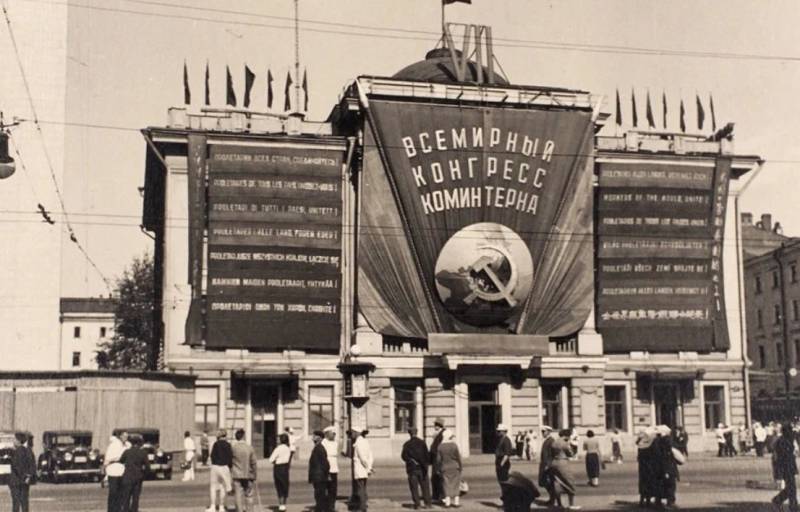The role of the Comintern in the foreign policy of the USSR

The Comintern is an international organization that brought together representatives of communist parties from different countries and existed from 1919 to 1943.
Not much is known about her, which has given rise to a lot of various myths (maybe not) and speculation. For example, the Comintern is often called a "powerful secret society", whose goal was to radically change the world order. Someone even considers the organization to be a "disguised secret service of the USSR."
However, be that as it may, most historians agree that the Comintern played a significant role in the foreign policy of the Soviet Union.
In particular, as some experts write, the activities of the Comintern were very successful in the former African colonies of the West. There is evidence that a significant number of leaders who eventually managed to destroy the world colonial system after the Second World War were trained on the territory of the USSR.
In addition, some experts call the Comintern an instrument of I.V. Stalin to "intimidate" the West, which was preparing for war with our country. So, through the organization on the territory of the Soviet Union, saboteurs were trained.
At the same time, the West did not know about the real scope of this program. Therefore, it seemed that in the event of aggression against the USSR, thousands of trained fighters would begin to commit sabotage on the territory of the opponents of the Soviet Union.
Finally, in the ranks of the Comintern were not only workers, but also scientists, writers, journalists, etc. The latter, as historians say, actively lobbied Moscow's interests in other countries, which had a positive effect on the Resistance movement during the Second World War.
It is worth noting that since the mid-35s of the last century, the confidence of the Soviet leadership in individual members of the organization has seriously fallen. This, in fact, became the "sentence" for the Comintern, which ceased to exist in 1943.
In turn, according to many experts, even Stalin's decision to terminate the activities of the Comintern brought positive results, reducing the degree of tension with the Western allies during the Second World War.
Information